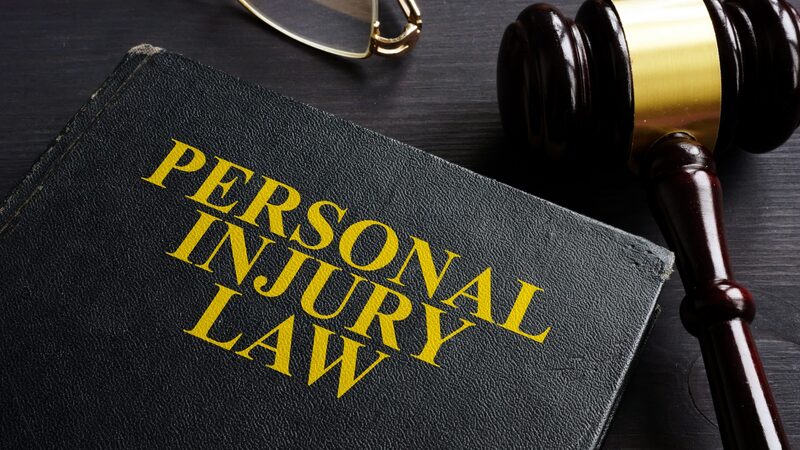When a commercial truck is involved in a collision, the results are often catastrophic. These vehicles can weigh up to 80,000 pounds and cause severe damage, life-altering injuries, and significant financial losses in an instant. Many people assume that the truck driver is solely responsible for the crash — but in reality, liability in these cases is often far more complex.
Several different parties may share responsibility for a truck accident, and identifying them is critical to ensuring you receive the full compensation you’re entitled to. Working with an experienced truck accident attorney in Peoria, AZ, can help uncover every liable party and strengthen your claim.
The Truck Driver: The Most Obvious Liable Party
In many truck accident cases, the driver’s negligence is the most apparent cause. Truck drivers are expected to follow strict safety standards, and when they fail to do so, they can be held liable. Common examples of driver negligence include:
-
Speeding or reckless driving
-
Driving under the influence of drugs or alcohol
-
Fatigue from violating hours-of-service regulations
-
Distracted driving, such as texting behind the wheel
-
Failing to maintain a proper distance or signal lane changes
Trucking Companies: Often the Primary Defendants
One of the first places an experienced best truck accident attorney will look when investigating a crash is the trucking company. Under the legal principle of vicarious liability, employers can often be held responsible for their employees’ actions if the driver was operating within the scope of their employment at the time of the crash.
Beyond driver negligence, trucking companies themselves may be directly liable if their policies or actions contributed to the accident. This could include:
-
Negligent hiring or training: Employing drivers without proper qualifications or adequate safety training.
-
Pressure to meet deadlines: Encouraging unsafe driving practices by imposing unrealistic delivery schedules.
-
Failure to maintain vehicles: Neglecting routine inspections, repairs, or maintenance that leads to mechanical failure.
-
Violations of federal regulations: Breaching Federal Motor Carrier Safety Administration (FMCSA) rules.
Cargo Loaders and Shippers: Overlooked but Often Responsible
The cargo inside a commercial truck plays a major role in how it handles on the road. Improperly loaded or unsecured cargo can shift during transit, causing the truck to tip over, jackknife, or lose control. In some cases, cargo may even spill onto the road, leading to multi-vehicle collisions.
If a third-party company was responsible for loading or securing the cargo, they might share liability for the crash. This is especially relevant when:
-
Cargo exceeds legal weight limits
-
Weight is distributed unevenly
-
Hazardous materials are improperly contained
-
Securit devices fail due to negligence
Truck and Parts Manufacturers: Product Defects and Mechanical Failures
Sometimes, the cause of a truck accident is not human error but mechanical failure. Defective brakes, faulty tires, malfunctioning steering systems, and other mechanical problems can lead to catastrophic collisions.
In such cases, the manufacturer of the truck or its components may be held liable under product liability laws. These claims often require in-depth investigation, including expert analysis and evidence from crash reconstruction specialists. Holding manufacturers accountable can significantly increase compensation — particularly in cases involving severe injuries or wrongful death.
Maintenance Providers: Responsibility for Safe Operation
Many trucking companies outsource vehicle maintenance to third-party service providers. If a maintenance company failed to properly inspect, repair, or service the truck — and that negligence contributed to the accident — they too could be held responsible.
Examples of maintenance-related negligence include:
-
Failing to replace worn-out brakes or tires
-
Overlooking critical mechanical issues during inspections
-
Installing defective replacement parts
-
Performing incomplete or inadequate repairs
Establishing maintenance-related liability requires detailed records and expert testimony, both of which a local personal injury lawyer can help obtain.
Government Agencies and Contractors: Unsafe Road Conditions
In some cases, the cause of a truck accident lies not with the driver or the vehicle but with the roadway itself. Poorly designed intersections, inadequate signage, potholes, or poorly maintained highways can contribute to collisions.
When this happens, government agencies or contractors responsible for road maintenance may share liability. While claims against government entities are more complex and subject to strict deadlines, they can be an important part of pursuing full compensation for your losses.
Why Identifying All Liable Parties Matters
Truck accidents often result in significant damages — from extensive medical bills and lost wages to long-term rehabilitation and emotional trauma. Limiting your claim to just the driver could mean missing out on compensation from other responsible parties with deeper financial resources.
By thoroughly investigating the accident and identifying every potentially liable entity, the best truck accident attorney can help maximize your recovery and ensure that those responsible are held accountable.
If you’re seeking legal guidance after a serious truck collision, consider reaching out to a reliable personal injury lawyer who understands the complexities of multi-party liability claims and can guide you through the process.
Truck Accident Liability Goes Far Beyond the Driver
Truck accidents are rarely simple. They often involve multiple layers of responsibility — from the driver and trucking company to cargo loaders, maintenance providers, manufacturers, and even government agencies. Understanding these complexities is essential to building a strong claim and pursuing the full compensation you deserve.
If you’ve been injured in a truck accident in Peoria, AZ, don’t assume the driver is the only one to blame. With the right legal support, you can uncover all responsible parties and hold them accountable for the harm they caused.

